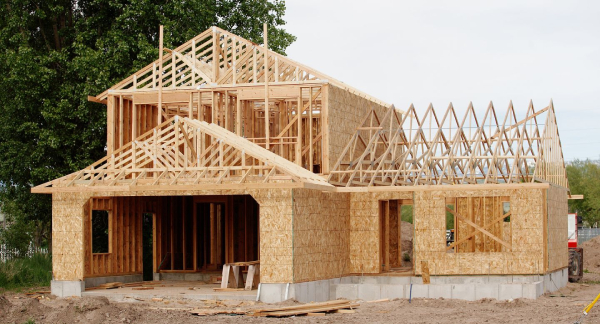Looking for Hard Money Land Loans?
Many real estate investors are surprised to learn hard money loans can be used to purchase land. If you are interested in a land purchase, it is important to learn all the details about land loans to ensure you are prepared to make the right decision.
We are here to explain the entire process to you and help you understand your options. Allow this information on hard money land loans to prepare you for the next steps you need to take.
Although private lenders sometimes offer this type of loan for purchasing vacant land, it is not common. Many lenders do not want to lend on vacant land for the following reasons.
- Vacant land is difficult to sell. If a borrower defaults, the lender may find it cumbersome to unload the property.
- Most vacant land does not produce income. If the lender cannot sell the property, they are forced to hold on to it long term while paying property taxes.
- Lenders may lack development experience, which would prevent them from being able to continue the project.
Most lenders will be much more conservative with a land loan. Although it is more difficult to get a land loan, it certainly is not impossible.
Understanding the Rules for Hard Money Land Purchases
A lender will have some guidelines that must be met for them to approve funding for land loans. We will examine these below so you will be prepared to learn if you qualify.
The Reason for the Loan
One of the most important rules to remember about hard money land loans is that the purpose must be for investment. You cannot purchase land and build your home, as this would be considered a consumer-purpose loan.
If you have equity in a piece of land, you can cash out, but the funds must be used for your business or investment purposes. Remember: guidelines for land loans will be different for each lender, but most follow a somewhat standard protocol.
Loan-to-Value Ratio
The maximum LTV for a land purchase, in many cases, will be 50% of the purchase price. This percentage often remains the same whether you buy land or want to refinance.
If you plan to purchase land, you will need to come up with 50% of the down payment for the purchase loan. You can also try to find lenders who may be willing to use the equity you have in another investment property instead (often referred to as cross-collateralization).
Borrowers who want to refinance should expect the 50% rule. You will get 50% of the as-is value. It is important to note that lenders usually never offer refinancing for vacant land. You can only get a 1st lien position loan on land.
While 50% is the average, some lenders will not go this high and may only offer up to 25%. Some lenders may go above 50%, though this is rare, and those that do will only extend the percentage for highly experienced and successful real estate investors.
Understanding the Land Classifications
When you request land loans for buying land, it’s important to understand the different land classifications. Many private financiers will only consider land loans when the land is based in suburban or urban areas. Keep the property type in mind when applying.
Infill Land
Infill land means the lots that surround the vacant land are developed. If you attempt to purchase vacant land surrounded by other vacant lots, you may find it arduous to get funding.
Timber Land
Not all lenders will approve a land loan on timber land. This property type is filled with tall trees. Lenders may be hesitant because of the difficulty of selling this kind of a lot.
Covered Land
Covered land is most often talked about in regard to development. A piece of land is called covered land if there is an existing building on the land. The plan for covered land is to tear down the existing property and redevelop it.
Agricultural Land
Agricultural land, also known as ag land, is generally more attractive to lenders because it has a greater chance of bringing in profits than timber land. Not all lenders are willing to take on agricultural land properties. Should you find willing lenders, they will ask about the crops being grown on the ag land.
EXAMPLE LOAN SCENARIOS
What About the Land Status?
After asking about the land classification, private lenders will want to know the status. You will need to be prepared to answer any questions about the land status, including whether or not the subject property is considered raw land.
Raw Land
Raw land is land that does not have any utilities. If the land is hooked up to electricity, water, and sewer, it is simply considered vacant land and not raw land.
Entitled Land
Entitled land is land that the city or council has approved for a specific use. The subject property land will be approved for a single-family home, industrial, multi-family, etc.
Shovel-Ready
Shovel-ready land has all the necessary permits and approvals. This property is usually ready for construction and, therefore, not considered raw land. Often, investors will develop land to the shovel-ready stage and then sell it to a developer. In this case, a short-term bridge loan may be ideal.
Determine Your Exit Strategy for Hard Money Loans
If you’ve ever sought a loan, you know the importance of an exit strategy. Your exit strategy is simply your plan to repay your loan, and you must plan this before getting approval through private lending. The lender wants to know you are prepared. Ask yourself these questions.
- How will you repay the loan?
- Will you develop the property and repay the loan before the construction loan?
- Will you sell the land?
- Will you sell another owned property to pay off the land loan?
What Can You Expect From the Interest Rates?
Interest rates on hard money loans vary according to the state, region, your credit history, and many other factors — the national average ranges between 10 and 15%.
You will find you are required to pay monthly interest payments. The lender will want to know how you plan to pay these.
Some hard money lenders will consider building an interest reserve as a part of the loan. This type of reserve allows borrowers to advance funding to pay the interest on their private money land loans. Many hard money lenders do not offer this, but it never hurts to ask.
Tips for Finding a Hard Money Lender for Land
Finding a private money lender willing to offer private money land loans is not as easy as others, but it is not impossible. First, you need to know what to look for in a lender.
- Always find lenders who specialize in hard money loans. Private money land loans are a little trickier to come by, and you certainly do not want to work with a novice on such an important loan.
- Find a national hard money lender. These private money lenders typically work with local inspectors for appraisals and offer competitive rates, origination fees, higher maximum loan amounts, and more.
- All hard money lenders should be highly transparent with the fees they charge, such as an origination fee and the process fee. If the process seems covert, look for another lender.
When searching for hard money lenders, you first need to know your hard money and private money loan needs. With careful research, you should be able to utilize hard money loans that meet your needs and your real estate investment strategy.
Hard money lenders are focused more on the property’s value than they are on your creditworthiness. For this reason, you will find some private lenders or other lenders shy away from land loans because they want to ensure their profits should you default.
MORE EXAMPLE LOAN SCENARIOS
Why Should You Seek a Hard Money Land Loan?
As an investor, you know how important it is to secure funding for the minimum loan amount. Having a solid relationship with a lender is a must for your success. The following are some reasons investors choose these loans.
Rapid Process
You’ve found the perfect piece of vacant land and want to scoop it up right away, but the bank is dragging its feet. Unfortunately, another investor comes up with the capital and grabs the property right under your nose. Sound familiar?
Banks can take up to 45 days to approve you for your minimum loan amount. The fast process is what causes many investors to seek hard money loans. In some cases, you could have your money within ten days, depending on the factors of your land loan and the process.
Establish a Relationship
Developing a good history with a lender is extremely important for your real estate investment endeavors. If you are approved for maximum loan financing, make every effort to pay your payments on time.
Having a good track record with the lender will make them want to work with you again in the future. After establishing a relationship, the lender may be willing to reduce the fees or the processing time. Negotiations are easier when you have a solid relationship with the lender.
Help for Beginners
Because these loans allow you to purchase a property with very little down, they are ideal for beginners. Once you have become established as a real estate investor in good standing, you may find it easier to get funding from a bank.
Get Started Today for Quick Pre-Approval
We understand the stress of finding funding. We are here to help you every step of the way to get approval.
Get started today, and our lender partners will be happy to help you get fast pre-approval on your loan amounts. With a hard money loan for land, you can invest in your next project and start purchasing land right away. Now is the time to get started on approval.







